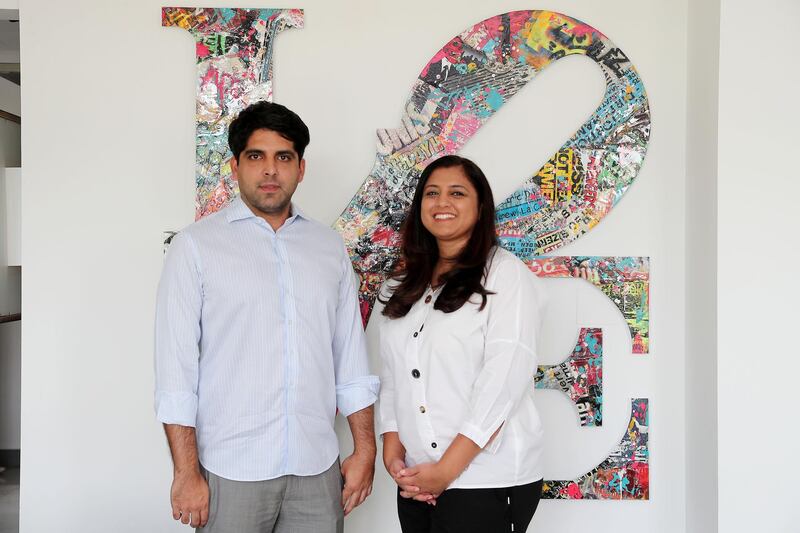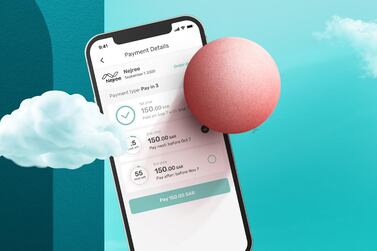Australia’s Zip, a global buy-now-pay-later platform, bought out Dubai-based Spotii for $16.25 million as the market for payments by instalment on e-commerce purchases continues to grow around the world.
Under the deal, the Australian FinTech will purchase the remaining shares in Spotii that it does not already own for an amount of $16m, plus adjustments for working capital, Zip said in a statement to the Australian Securities Exchange, where its shares trade. The investment will see Zip build on its initial 20 per cent investment in Spotii (made in December 2020), to purchase the remaining 80 per cent stake, implying an overall value of $20m for the Dubai company.
"We see this as a game-changer for the BNPL market in general," Anuscha Iqbal, chief executive of Spotii, told The National.
“We have a very large, global player who is bringing best-in-class products and services through the Spotii platform. Zip has been active in the BNPL space for eight years, so they have a lot more learnings in the sector, which we will be leveraging. They also have an extremely strong balance sheet, which is critical to the success of the BNPL sector.”
The deal is expected to be completed in the third quarter of this year, the statement added.
The BNPL business model, which allows consumers to make online purchases instantly and pay for them later, is booming, with services such as Sweden's Klarna, US-based Affirm and Australia's Afterpay offering flexible financing to consumers, according to the 2020 Global Payments Report by payment processor Worldpay Group.
“Catering to growing consumer desires, particularly from Gen Z and millennials, they offer flexible financing on a situational basis without the longer-term commitment and expense of traditional credit cards,” the report says. “We project these payments to account for 9 per cent of e-commerce spend by 2023, triple the rate we reported in 2018.”
In addition to Spotii, there are a number of players jostling for a share of the Middle East market, including Postpay, Cashew, Tabby and Tamara.
“There is a large, untapped opportunity to bring BNPL to emerging markets where cash on delivery remains a significant merchant challenge, and where the digitisation of retail accelerates,” Larry Diamond, Zip co-founder and chief executive, said.
About 650 merchants in the UAE and Saudi Arabia have access to the Spotii platform, which was founded in April last year. Merchants include homeware retailers Jashanmal and Danube Home.
Meanwhile, Zip has more than 6.5 million customers globally, enabling Spotii’s merchants to access customers in 11 countries across five continents, the statement added. The company processed A$2.1 billion ($1.62bn) of payments last year, earning A$161m in revenue, according to its website.
Merchants using Spotii reported an increase in conversions to sales of about 40 to 70 per cent and a growth in average order value by 50 to 70 per cent, co-founder Ziyaad Ahmed told The National.
“This is the first global BNPL partnership created that includes the Middle East,” Mr Ahmed said. “Zip is already active in the US, Europe, Australia and Africa. Now they will also be active in the Mena region.”
The partnership will allow BNPL customers in the Mena region to have more access to international merchants. For instance, Spotii’s customers based in Saudi Arabia and the UAE can buy now and pay later directly from the app when they travel to the US or Europe, Mr Ahmed added.
Zip also acquired a majority stake in Twisto, based in the Czech Republic, giving it access to 27 markets in the EU. The company paid €89m ($108.6m) for the remaining 89.4 per cent stake in the company that it did not already own.








